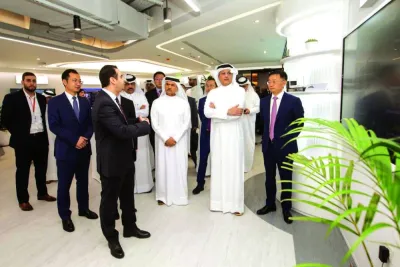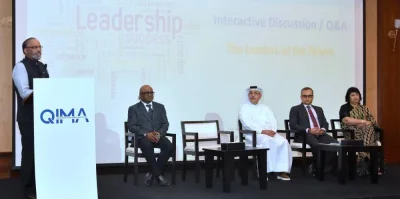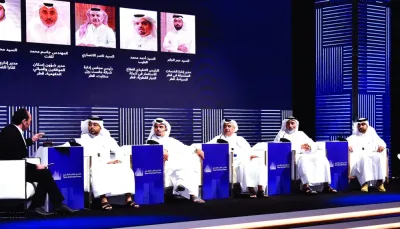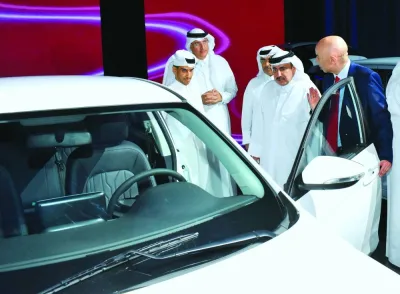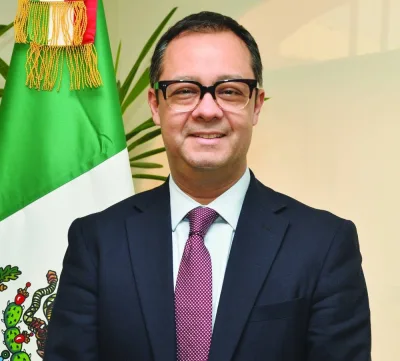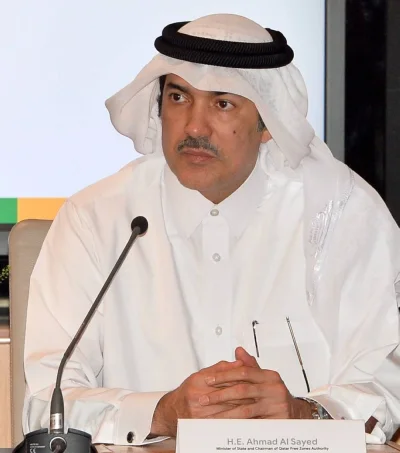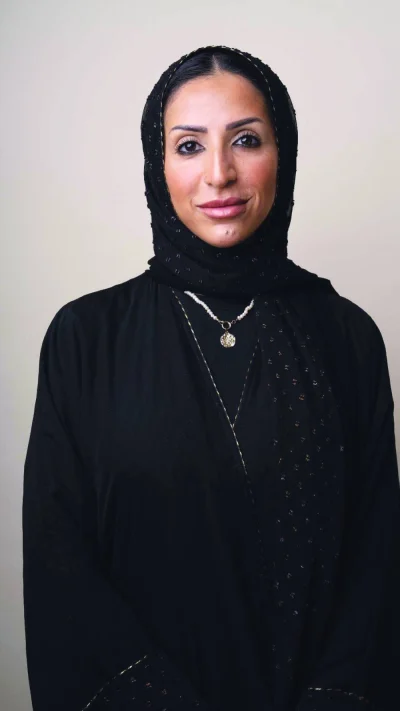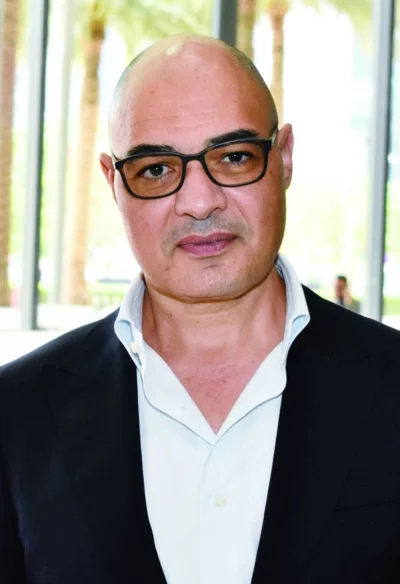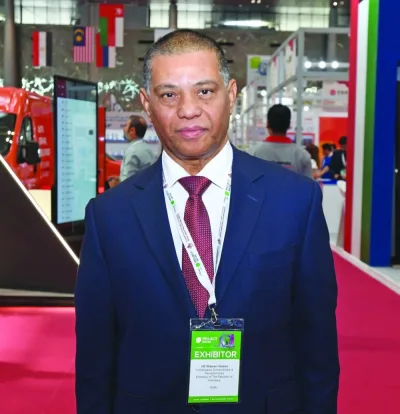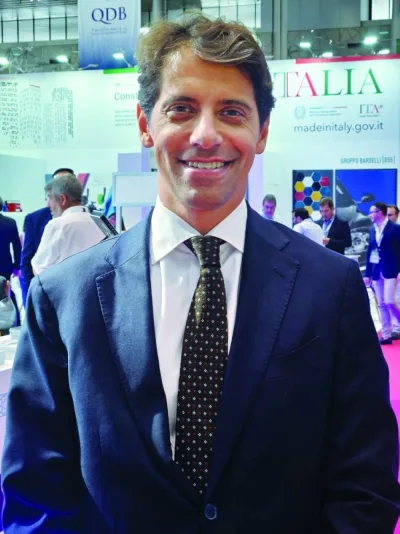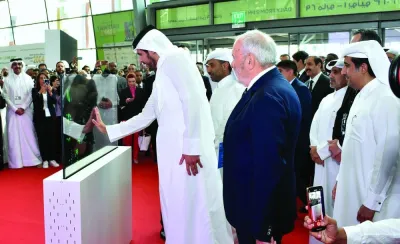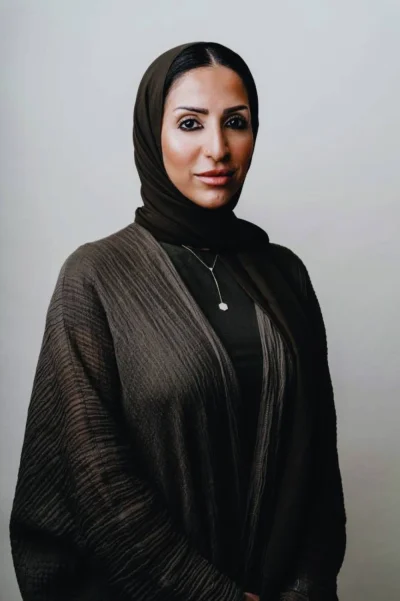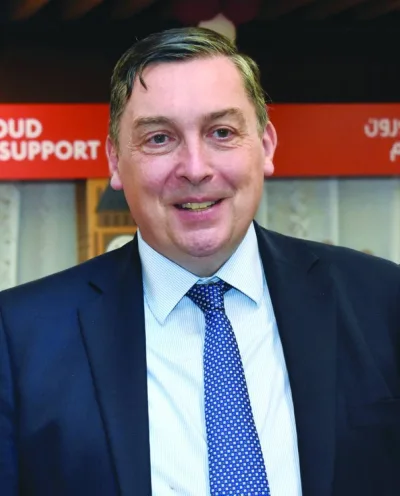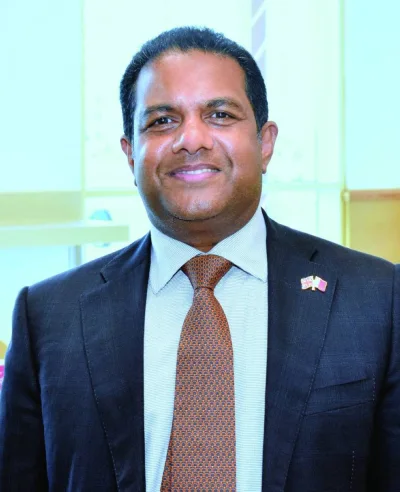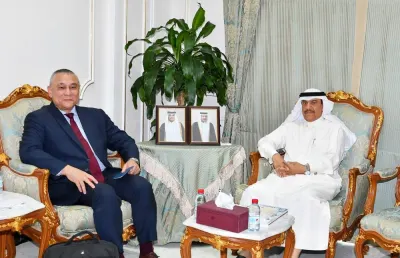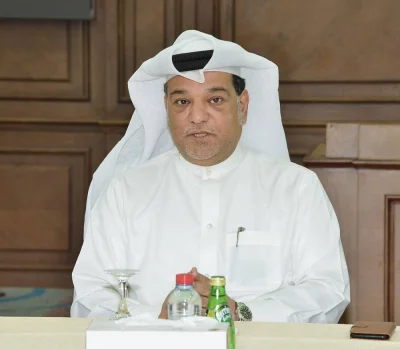HE the Minister of Communications and Information Technology Mohamed bin Ali bin Mohamed al-Mannai led the opening ceremony of Huawei’s new state-of-the-art office at the UDC Tower in The Pearl Island Tuesday.Huawei’s new 4,000sq m office will house the company’s main Qatar operation team and was designed to help meet the future needs of its growing workforce. The office opening is in line with Huawei’s expansion plans in Qatar and its commitment to supporting the country’s digital transformation, ICT ecosystem, and digital economy.In a statement, Huawei said: “The move reaffirms Huawei’s long-term commitment to Qatar and is a milestone in the company expansion plan targeted at enhancing its presence, activities, offerings, and contributions to the Qatar market to achieve its mandate to play a key role in achieving the country’s digital transformation goals.”During the inauguration ceremony, the minister was joined by senior representatives from Investment Promotion Agency of Qatar (IPA Qatar), United Development Company (UDC), the Embassy of the People’s Republic of China in the State of Qatar, and Huawei management team led by Steven Yi, president, Huawei Middle East and Central Asia.The minister said, “Huawei is considered as one of our important partners and is among the top leading companies in the field of ICT. I am pleased to welcome Huawei’s new expansion in Qatar. There is no doubt that this will contribute to enhancing digital innovation and creating new digital opportunities in the Qatari market.”Yi said: “Today’s new office opening is a commitment to our future in Qatar. We are proud of our history in the country and Huawei will continue to support Qatar’s digital transformation through its cutting-edge technology solutions.“I look forward to welcoming customers, partners, visitors, and Huawei team members to our new office. I am confident that this expansion will drive further recruitment of elite talent who will take the lead in achieving the goals of the Qatar National Vision 2030, towards a leading sustainable digital society.”According to Huawei, its new office will host the company’s business operations, including carrier networks, enterprise, consumer, cloud, and digital power. In addition, the office will play a critical role in managing the company’s CSR programmes and initiatives in Qatar, such as Huawei’s flagship programme, ‘Seeds for the Future’, ‘ICT Competition’, and ‘Huawei ICT Academy’.The office also houses an exhibition centre that will function as an executive briefing centre, showcasing many of the company’s products, solutions, and advanced technologies in the ICT industry.With a seafront and Qatar skyline view, Huawei’s new office has broad and open collaborative areas with natural light and beautiful landscapes. Following the curves that were inspired by the ocean waves, spaces were created to hold meetings and demonstrate Huawei’s industry-leading technologies to clients.UDC, the master developer of The Pearl Island and Gewan Island, signed an agreement last year with Huawei to boost smart city characteristics by designing and integrating innovative solutions at The Pearl Island. At Milipol Qatar 2022, UDC extended its partnership with Huawei to deploy its smart campus system at the new UDC development at Gewan Island.Huawei has been operating in the Qatari market since 2003 and currently works with telecom providers Ooredoo and Vodafone Qatar, serving approximately 2mn people in the country.Huawei is also actively cultivating local ICT talents to contribute to Qatar’s ICT ecosystem. Huawei expanded its STEM and education initiatives last year through its flagship CSR programme, Seeds for the Future, Huawei ICT Competition, and Huawei ICT Academy to further support the country’s core focus on innovation.

Peter Alagos
Peter Alagos reports on Business and general news for Gulf Times. He is a Kapampangan journalist with a writing career of almost 30 years. His photographs have been published in several books, including a book on the 1991 Mt. Pinatubo eruption launched by former Philippine president Fidel V. Ramos. Peter has also taught journalism in two universities.
Most Read Stories

